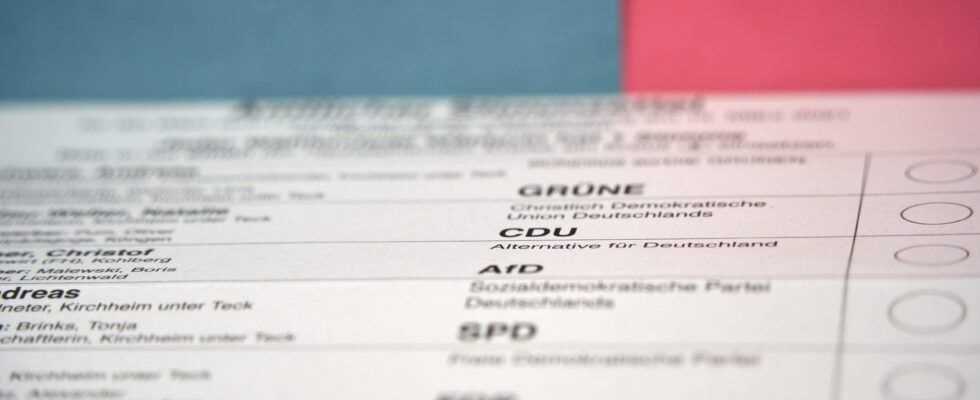Observers expect record postal votes for the upcoming election. But there are concerns that blockchain technology could resolve.
The election campaign for the federal election is entering the hot phase. While the candidates of the individual parties are still fighting for the favor of the undecided, there will be a new record in any case: participation by postal voters. Some constituencies are already reporting record numbers. In Frankfurt am Main, for example, the head of the Citizens’ Registration Office Oliver Becker shared with the German Press Agency (dpa) with the fact that 150,000 postal votes have already been cast in the Hessian financial metropolis – twice as many as in the last federal election, and that two weeks before the election. Election observers from North Rhine-Westphalia also noticed a significant increase in participation through postal votes. In general, this value was just under 28 percent in the last nationwide election in 2017. Compared to the ARD capital studio Michael Kellner, campaign leader for the Greens, predicted an increase in postal voters to 40 to 50 percent.
And although the postal voting method is considered to be safe in Germany, criticism of the process continues to arise. For example, the AFD MP Robert Farle, who is seated in the Magdeburg state parliament, warned of “the greatest electoral fraud of established parties”, while other AFD members were concerned about “massive opportunities for manipulation”. The right-wing populist party has not yet been able to provide any evidence. Rather, one seems to be looking for reasons for a possibly disappointing election result – a similar strategy was already observed in the last US election of ex-President Donald Trump.
In fact, there have been isolated cases of postal voting fraud in Germany in the past. In 2021, a vote in Rüsselsheim and Raunheim hit the headlines when irregularities were discovered in individual constituencies. In addition, there is another problem with the method. Because when voting by post, you cannot understand whether the vote was cast independently, unobserved and uninfluenced. Various projects are now trying to solve these deficits using blockchain technology.
Postal voting over the Internet?
This is how the US project is planning VoteXXTo move postal votes to the Internet. In the future, citizens should be able to vote on their smartphones, explains that XX network towards BTC-ECHO:
Such remote internet voting has many advantages: convenience, low cost, more accurate ballot identification, quick reporting of results, and improved usability and accessibility, including multi-language support and long ballot papers.
XX-Network towards BTC-ECHO
“Blockchain a means against hacks and vote buying”
According to the project, such systems have so far not been used out of “fear of hacks and voice sales”. This problem exists with all types of long-distance voting, including postal votes. VoteXX wants to solve these challenges in two ways. On the one hand, the blockchain protects against external malware attacks.
Each computer involved must commit to a digital audit trail by printing or posting it without revealing how people voted. Voters and auditors then check everything from start to finish and confirm the accuracy of the results. This strategy turns the malware problem on its head.
XX-Network towards BTC-ECHO
The malware would therefore have to control every computer that has ever accessed the data. On the other hand, the problem of buying votes would also be eliminated, according to his own statement, since a reversal of the vote would still be possible even after votes have been cast. The vote buyer is not given complete assurance that the vote will also be in his interest. VoteXX relies on a so-called “flip code”, which is issued to the voter during registration and can be used to change the vote.
However, the project is not yet fully ready for practical use. There are currently no negotiations with the responsible authorities. As a next step, VoteXX plans to initially use the system in university elections in the USA. It remains to be seen whether one can then also digitize postal votes with one’s own concept.
In any case, there is still a long way to go before it is ready for the market.
